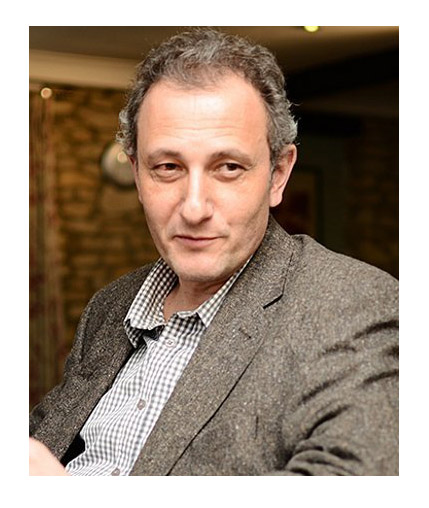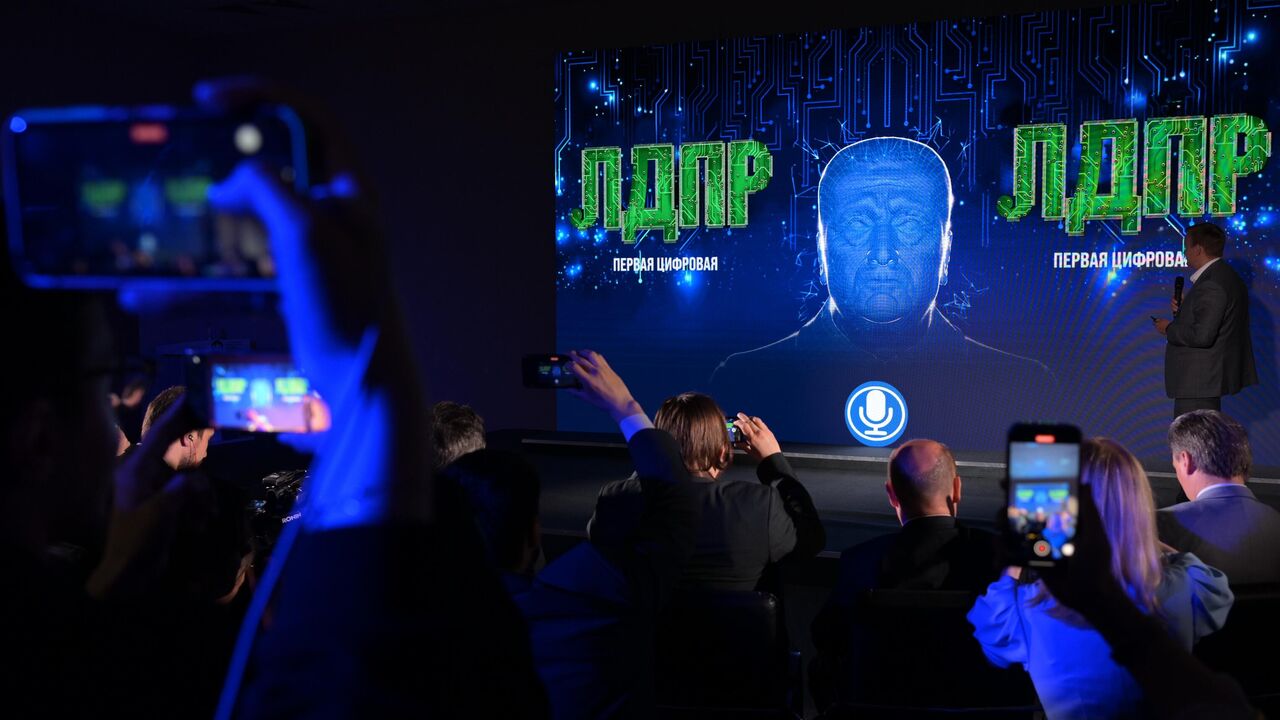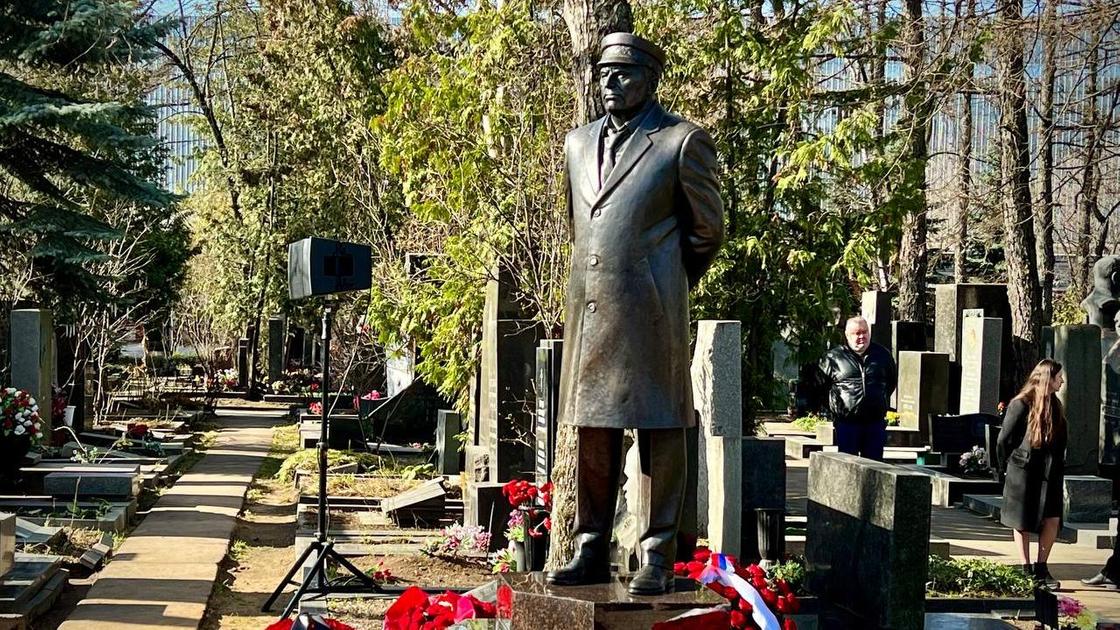 The competition in crazy and unconstitutional initiatives has long been part of the loyalty race among representatives of the "elite" and an element of their KPI. If madness is also accompanied by repressiveness, then the indicators are exceeded. And of course, it is no coincidence that Vladimir Zhirinovsky was chosen as a classic and pioneer of this genre of existence of political protein bodies — historical examples must be relied upon: Vladimir Putin signed a decree on holding events in 2026 dedicated to the celebration of the 80th anniversary of the birth of the late founder of the LDPR.
The competition in crazy and unconstitutional initiatives has long been part of the loyalty race among representatives of the "elite" and an element of their KPI. If madness is also accompanied by repressiveness, then the indicators are exceeded. And of course, it is no coincidence that Vladimir Zhirinovsky was chosen as a classic and pioneer of this genre of existence of political protein bodies — historical examples must be relied upon: Vladimir Putin signed a decree on holding events in 2026 dedicated to the celebration of the 80th anniversary of the birth of the late founder of the LDPR.
The organizing committee was headed by the recognized follower of political stand-up founded by Vladimir Volfovich, State Duma Speaker Vyacheslav Volodin. The deputy chairman of the committee for organizing the nationwide celebration is the current head of the LDPR, Leonid Slutsky. The scale of the festivities is evidenced by the composition of the organizing committee, more reminiscent of a modern politburo (and candidates for its members): Foreign Minister Sergey Lavrov, Finance Minister Anton Siluanov, Minister of Education Sergey Kravtsov, Minister of Science and Higher Education Valery Falkov, Minister of Transport Roman Starovoit, Deputy Prime Minister Dmitry Chernyshenko, Minister of Digital Development Maksut Shadayev, Minister of Culture Olga Lyubimova, President of the Russian Book Union Sergey Stepashin, Head of Rossotrudnichestvo Yevgeny Primakov (grandson of E. M. Primakov), CEO of Russian Railways Oleg Belozerov, CEO of the media group "Russia Today" Dmitry Kiselev, CEO of JSC "Channel One" Konstantin Ernst, as well as Vladimir Zhirinovsky's daughter Anastasia Botsan-Kharchenko.
Everything can be explained here, including the participation of the Ministry of Digital Development and the Ministry of Education: no one will be surprised if the bright image of a politician, whom no one called anything but "Zhirik" behind his back, is brought to kindergartens and primary schools in the form of a digital incoherently speaking copy. But the participation of the Minister of Transport and the head of the railway monopoly is difficult to understand: will propaganda trains travel across the country or will they hit our heads with a car rally?
In former, less aggressive and emotionally colored years, the classic and idol of the "elite" was Yevgeny Maksimovich Primakov — his image corresponded to the sluggish and more or less pragmatic Russian isolationism, and the "turn over the Atlantic" became a symbol of all future Putin's policies. Apparently, the current moment requires more drive, frostiness, language of hatred, absurdity. And if in this construction Primakov is, say, Marx, then he lacks some kind of Engels — just Zhirinovsky. And the roles of Lenin and Stalin at the same time can be played by a living classic, and we know him. By the way, the fondness for Zhirinovsky is undoubtedly his personal attitude: it is enough to compare how Putin said goodbye to Zhirinovsky and to a truly titanic historical figure — Mikhail Gorbachev. In the case of Vladimir Volfovich, it was sincere grief, in the case of Mikhail Sergeyevich — a crumpled formal procedure.

Neural network "Zhirinovsky". Archive photo
Yury Fedorovich Karyakin once made two accurate diagnoses, not even political, but anthropological. First, in 1988, in an article in "Ogonyok," he outlined the special role of "Zhdanov liquid" in masking the corpse smell still emanating from Stalin's time, adherence to which he called "blackening the future." And on December 12, 1993, Yury Fedorovich, on live central television, upon learning of the victory in the parliamentary elections of Vladimir Zhirinovsky's populist LDPR party and the relative success of the Communist Party, which took third place, uttered the main phrase of post-Soviet history: "Russia, come to your senses! You have gone crazy!"
The evolution of the political regime turned into the whitening of the past and another turn of blackening the future, marked by a return to semi-totalitarian forms of government. To that semi-crazy state when Vladimir Zhirinovsky becomes a model politician. This is an unmistakable symptom of the disease that has penetrated the bloodstream of the political system of modern Russia. This is a vicious circle, a hopeless serial thriller "Russia, You Have Gone Crazy-2."
It seems that similar honors will be deserved from Putin by Gennady Zyuganov. After all, it was Gennady Andreyevich with Vladimir Volfovich who for decades, like two Atlases, supported the massive "Stalinist" political regime of Putin, symbolizing and imitating multipartyism, sterilizing public discontent in their quasi-parties, which in their functionality differed little from the administration of the president's office for the elimination of political diversity. In Putin's image, both the communist (in the Stalinist version) and right-populist discourses merged, and the national-imperial ideology, now pouring into its natural form — the officially established "Black Hundred" under the leadership of oligarch Malofeev. For the rest — "sanitary measures," as if there were not enough Russian exiles in history and not enough bones of our compatriots and ancestors lie throughout the country in mass graves.

Monument to Vladimir Zhirinovsky at the Novodevichy Cemetery (Moscow)
Speaking of graves, much more comfortable and prestigious, those in which, as in the famous Soviet joke about the phenomenon of connections, "you need to lie down tomorrow." The balance of power at the Novodevichy Cemetery could replace the former Sovietologists' arrangement of the figures of gerontocrats on Lenin's mausoleum — it says a lot about the priorities of power, both political and ethical. Zhirinovsky already has a large monument there: for some reason, it resembles a wise and calm captain of a long voyage on the captain's bridge. Primakov is not far, but his monument actually stands in another place — at the confluence of eternal traffic jams on Smolenskaya-Sennaya. Chinese tourists are guided around Novodevichy. There is also a sweeping monument to the founder of Russian statehood, Boris Yeltsin — its wavy breadth, in essence, reflects the character of the hero. The most humane monument is a female figure and a simple tombstone at the joint cemetery of Mikhail Sergeyevich and Raisa Maksimovna, away from the main alley, where the graves of Primakov and Zhirinovsky dominate.
All this says something about the perception of Russian history, in which monumental propaganda has always been a technology of civil war of monuments. Civil society has practically only the Solovetsky Stone left, while the authorities have a multiplying multi-figure composition, interpreting history according to the "unified" textbook. There is no doubt that by the anniversary of the first populist, the forerunner of Trump, Zhirinovsky, a monument will be erected somewhere in a pompous Moscow place.
But what will happen later, when today's gerontocrats leave, many of whom have already reached the age of the Brezhnev politburo? Will these monuments have to be removed again, as the iron Felix was once demolished? Or is it better to leave them for "talks about really important things" for future generations — so that Russia does not go crazy again.
* The Ministry of Justice of the Russian Federation considers Andrey Kolesnikov a "foreign agent."
Photo: Photo host agency RIA Novosti / t.me/zhirinovskylive.